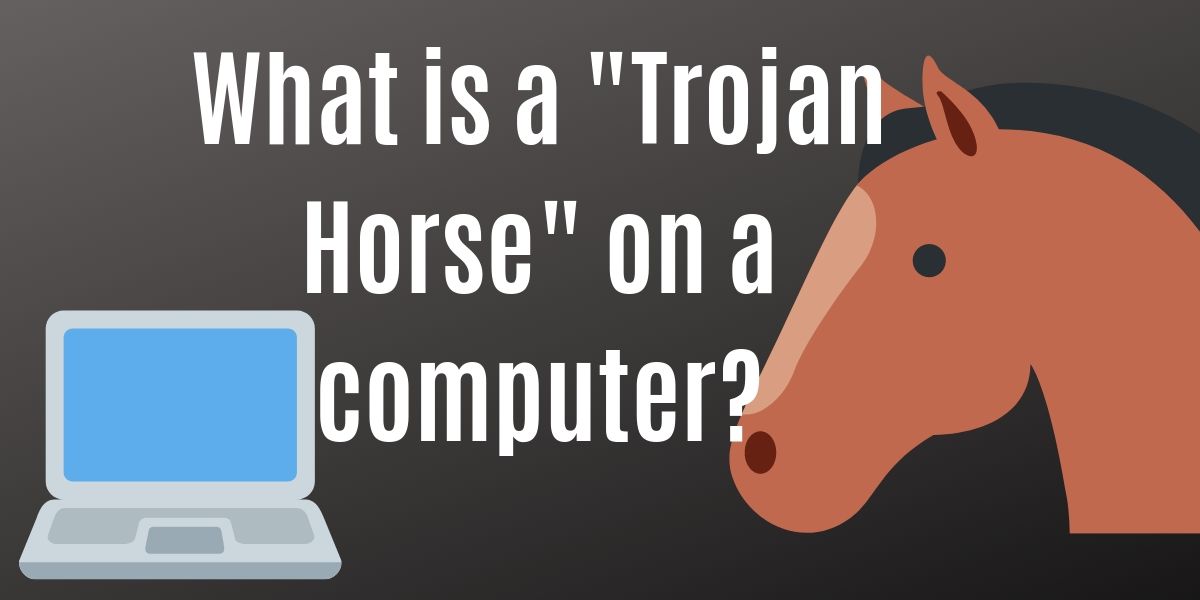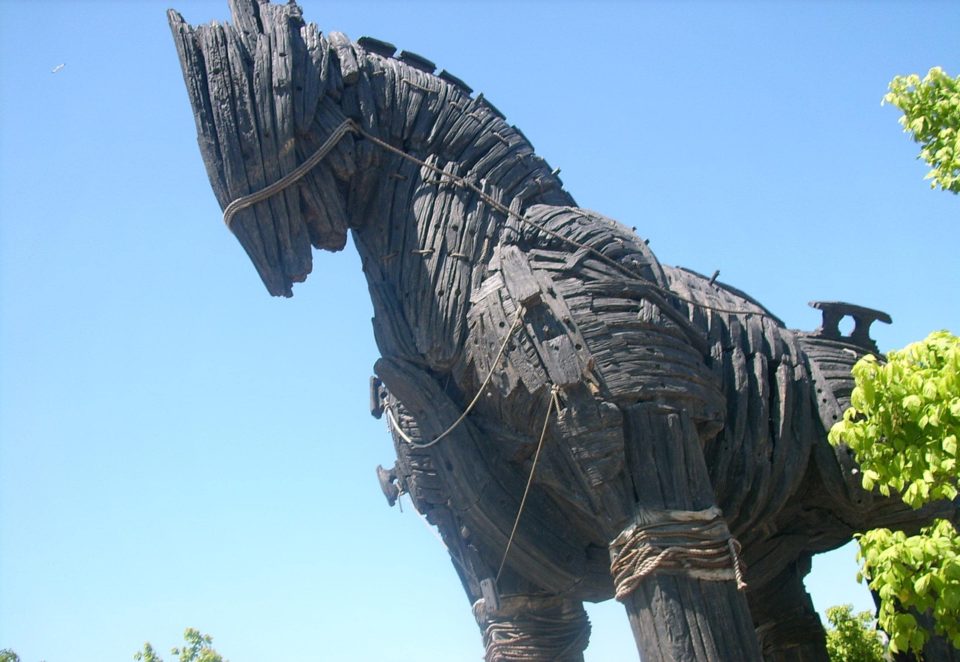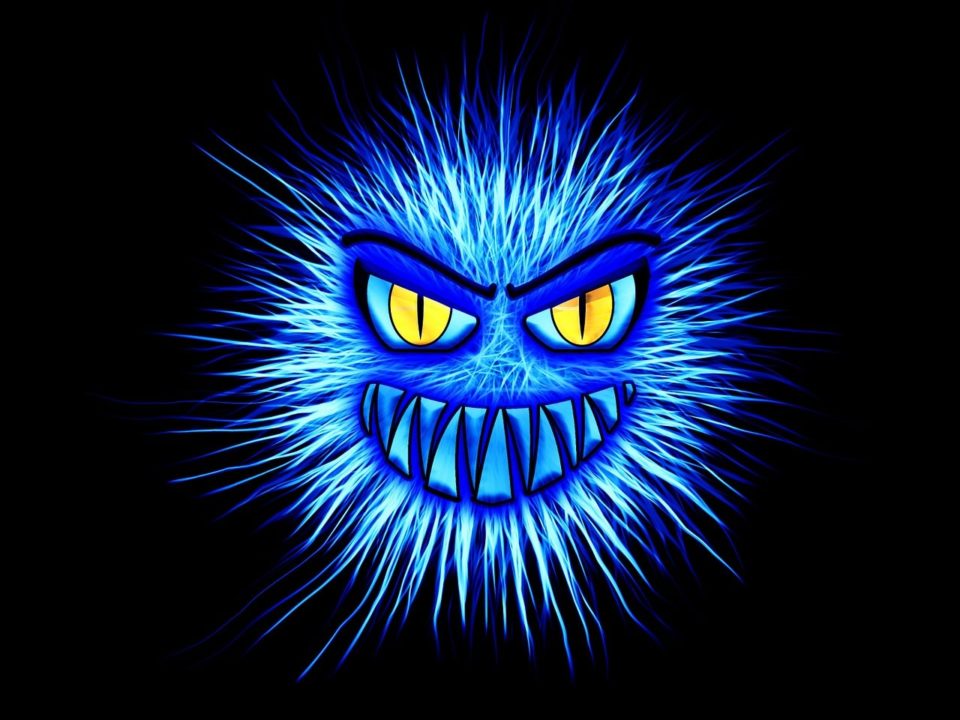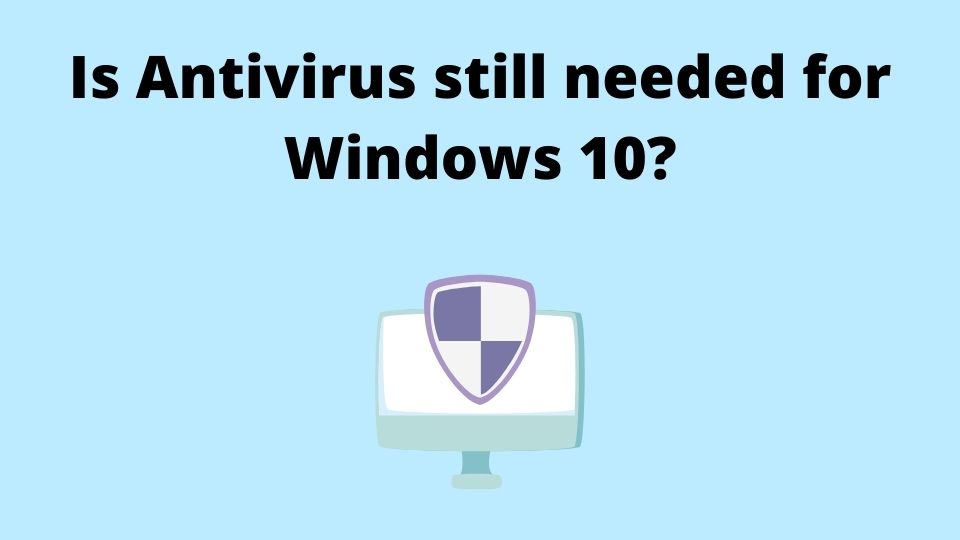A lot of different types of computer viruses are created and distributed every day. While all the malicious programs are harmful at some extent, one of the most dangerous is called a Trojan Horse. Please do not confuse it with a wooden stallion made by ancient Greeks in order to infiltrate the city of Troy.
What we are going to discuss in this article is not a real horse, but a malicious software designed to infiltrate your computer system. Trojan Horse is a common threat for your personal and financial safety. It is one of the most frequently used hackers’ tool to bring troubles for your online safety.
So, what is a Trojan Horse on your computer?
A Trojan is a type of a malicious software that tricks you to make you install it on your computer. This sneaky malware acts as if it was a legitimate and useful software. Once you install it, it’s going to start infecting your computer. Especially if you don’t have a reliable antivirus installed.
Computer Trojan acts as an intruder that is hard to detect. You may have had these types of harmful programs on your PC in past and haven’t even noticed. The biggest danger of this type of viruses is that it acts completely under cover.
A Trojan or a Trojan virus is probably the most dangerous type of malware you may encounter. All this because of it’s multi-purpose malicious nature. Trojans act as the delivery boys that drop multiple dangerous files to your system simultaneously.
But how is it possible for you to download a Trojan? Let’s find out in the following section…
How do you get a Trojan to your computer?
There is a lot of ways you can let a Trojan to your machine. One of the most common scenarios is as follows:
- you visit a nice and informative web-site
- at some moment you may see a huge banner with a nice stylish button asking you to download a very handy program or a utility
- as soon as you download and install that software, you might not even notice something bad started to happen
In many cases, Trojans start to do their dirty job in fully silent mode. You may still be thinking you’ve just installed a nice useful program, and even start using it, while not being aware what was inside the installation package.
Where do you find a Trojan virus in the Internet?
Have you ever visited cracked software sites? Maybe you’ve been looking for a free version of an expensive program, or just trying to watch your favorite movie online for free? Or, maybe you’ve been visiting some adult sites at some point?
Well, more than a half of these sites would contain some kind of a “downloader” application.
If you try to download a cracked software, or watch a movie, the sight owner might require you to download a special software first. The download message would promise you the best user experience in case of installing this “useful” utility.
Maybe, after installing a program from those dark sites, you are going to realize it is completely useless. Quite often, these type of suspicious utilities are actually not even working.
Of course, you will hurry up and uninstall it, to free up disk space it takes, and try to avoid getting attacked by a Trojan program.
Even though, you will be able to remove that program, this might be already too late. Especially if you’ve agreed to provide the administrator privileges during the installation.
What can happen next? Let’s see what threats and risks are, after having a Trojan installed accidentally to your PC.
What does a Trojan do to your computer?
The “Trojan Horse” itself is usually harmless. As I’ve mentioned above, you may even find the utility you’ve just installed very handy. You won’t even notice the nice “downloader” or a “file manager” program is actually a Trojan virus.
The way “Trojan Horse” works, is by tricking you to let it obtain the administrator permissions. When you are installing a Trojan virus that looks like a legit software, you might be asked to allow the installer to gain the administrator privileges. This is the worst case scenario.
As soon as the “Trojan Horse” gets installed, it’s gonna use the harmful payload built into it. A Trojan horse application, while being harmless itself, brings a dangerous payload with it.
Small sized “Trojan Horse” application may contain these types of malware when unzipped:
- Spyware (keyloggers to read your banking details and passwords, web-camera spying applications, web-traffic monitors);
- Ransomware (these malicious programs are the most dangerous, as those can encrypt all your files to demand a ransom for decryption);
- Worms (nasty viruses that’s going to spread all over the network, using email and file transfer as the routes for spreading);
- Botnet viruses (those are installed on your and other computers, to perform cyber-criminal activities on targeted companies, government institutions, social networks, banks, military networks);
- Adware (relatively harmless, yet very annoying programs that display ads as popups on your desktop, making you click on them, and earning money from your clicks);
What are some other bad things a computer Trojan can do to your PC?
While most of the Trojans simply ship a payload straight to your system drive, they can also perform some other evil activities.
After having a Trojan installed, it may cause a lot of damage to your digital privacy. Here are some of the most dangerous things a Trojan can do:
- Download and install new version of malware (it makes it very easy to get a zero day virus to your machine, since only a few antivirus programs can boast with a very good behavioral virus protection engine);
- Open a backdoor to your system (hackers can install a remote control application to your PC to allow them do what they want with your computer without any suspicion from your side);
- Install a Rootkit (to perform any type of malicious activity, without being spotted by your antivirus, because a Rootkit is a collection of harmful software that works together to increase the damage to your system);
- Search for the exploit and utilize it (a Trojan may scan your programs and their versions, as well as your OS type and build, to try and find possible exploits to create even more problems for you);
- Sending expensive SMS(s) (only in case of using a mobile device with a Trojan installed, you may receive crazy bills from your mobile provider);
- Copy, delete, move, modify, encrypt your data (all type of malicious actions can happen to your files since a Trojan can download any type of malware to your machine);
How to prevent getting a Trojan, and what to do in case you already have it?
Best thing you can do – is to NEVER install a Trojan to your computer. While this may sound a bit hard to do, here are some tips on how to do it:
- Try to avoid cracked software and free movies sites (as well as adult ones);
- Do not ever agree to install cryptic programs and utilities from those sites (in case you still decide to visit them);
- When installing a program from the unknown source, make sure you know what this program is (try and Google some information about it so you can make sure the program you are going to install is a legitimate one);
- Be careful when giving the admin privileges to a software you are installing (only provide these rights to a trusted application);
- Last but not least – Install an antivirus that provides a reliable protection against Trojans.
How to remove a Trojan from your computer?
What if you already have a Trojan on your machine? How do you know you have one?
Best way is to scan your computer with a second opinion malware scanner like HitmanPro, Zemana, or a MalwareBytes (Recommended).
There is a nice article that explains how to remove a virus from a laptop that would also help you even if using a desktop computer. In most cases you are only going to have a “Trojan Horse” problem with a Windows OS devices. MacOS and Linux powered systems are less likely to fall a victim of a Trojan.
Conclusion
Should you be afraid of a horse? Well, I mean should you be careful not to get a “Trojan Horse” to your computer? The answer is obvious.
Trojan Horse is probably the most dangerous type of malware since it acts as a container for multiple malicious programs in one package.
Stay safe, and always keep your OS up-to-date.
Do not forget to also install a reliable antivirus, and always keep your Firewall on.




